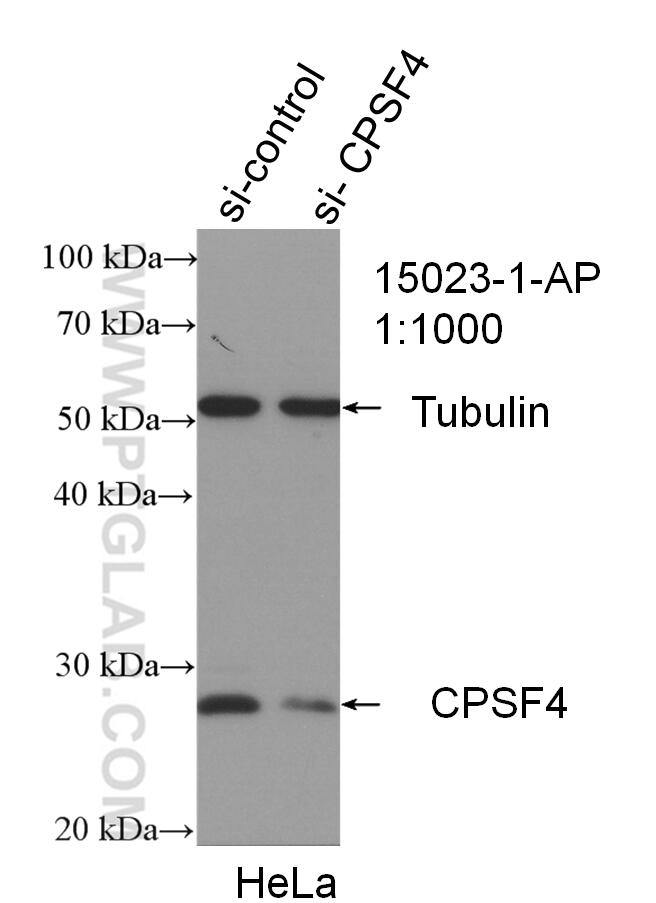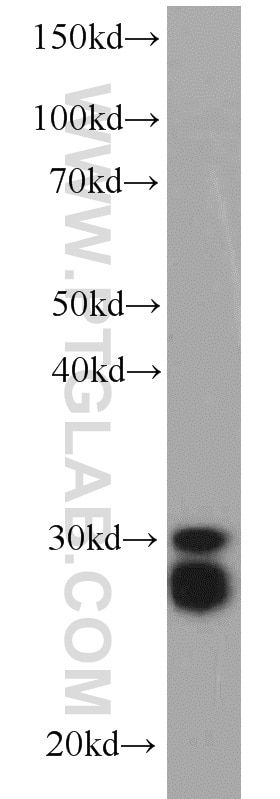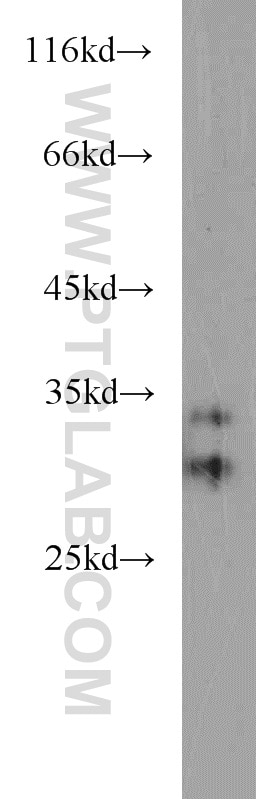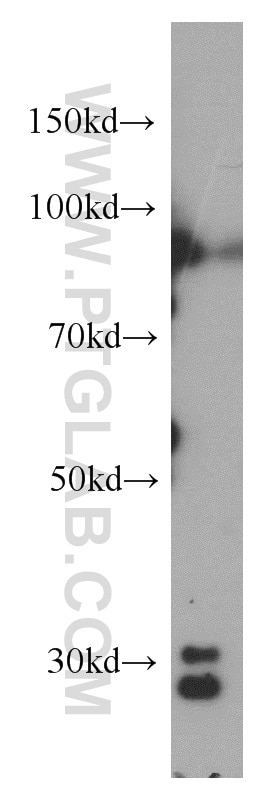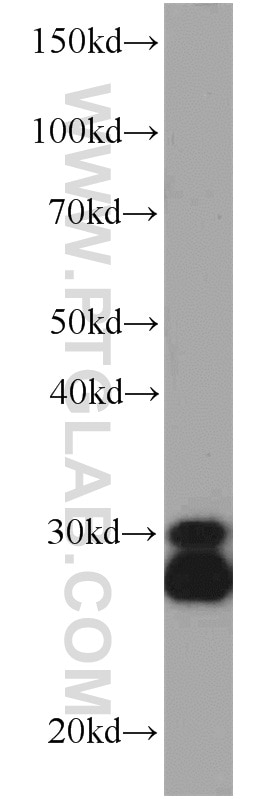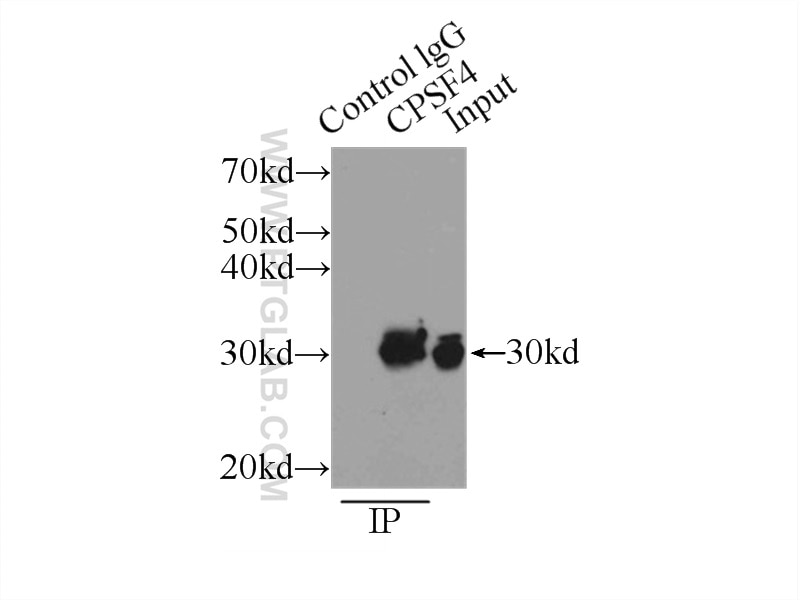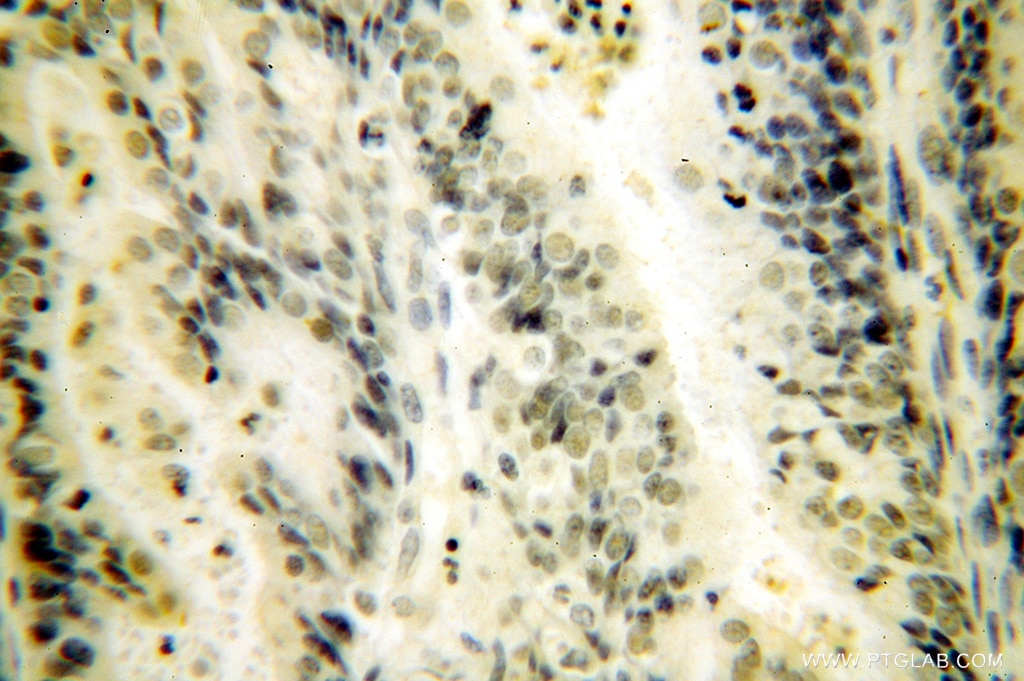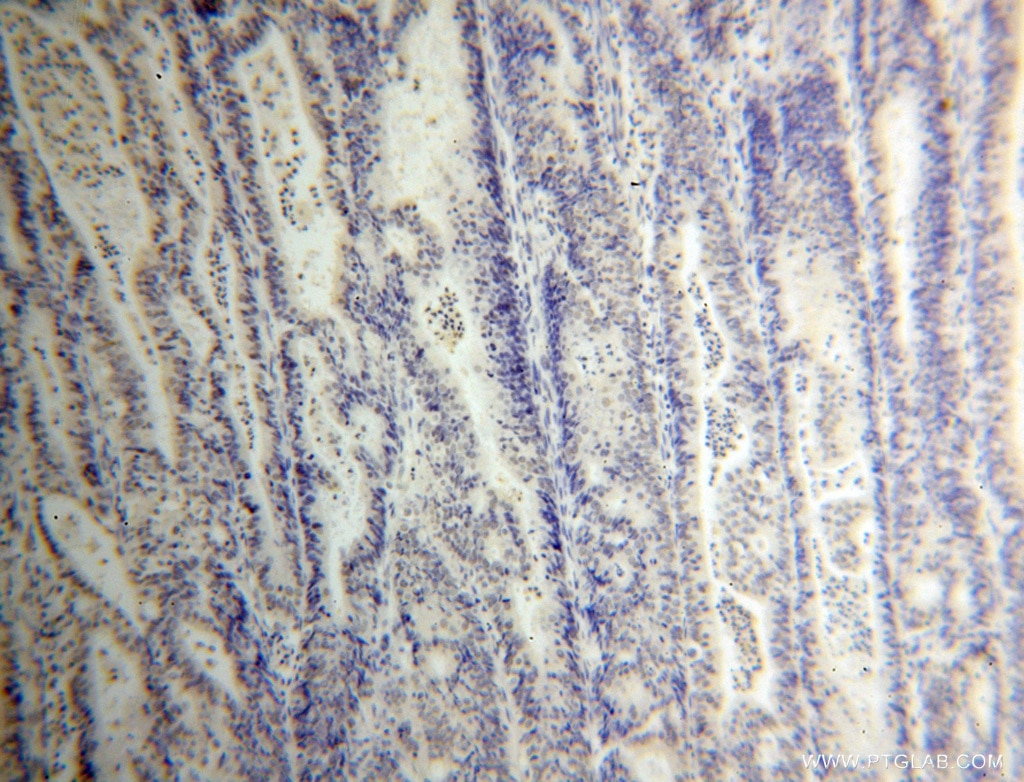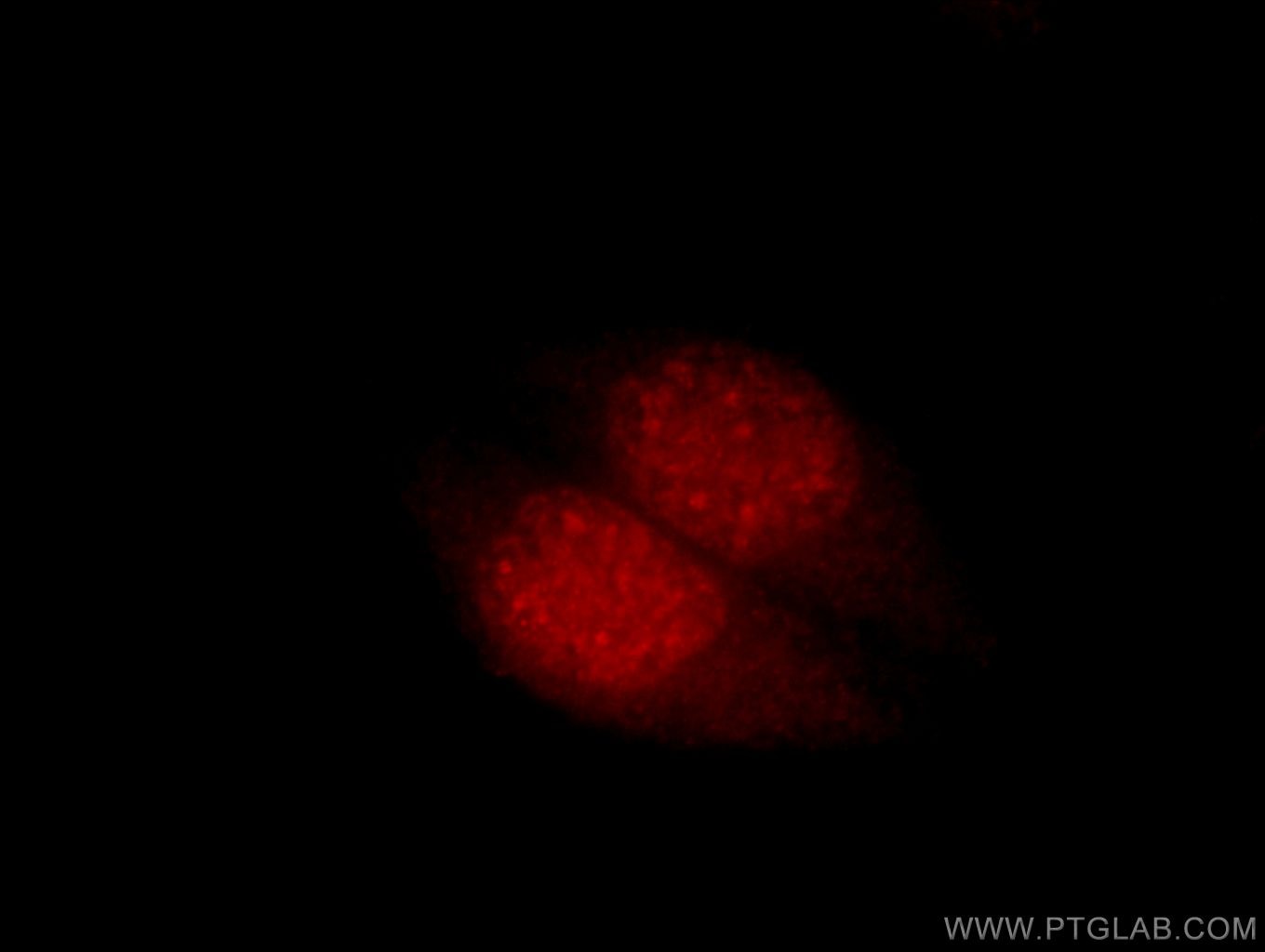- Featured Product
- KD/KO Validated
CPSF4 Polyklonaler Antikörper
CPSF4 Polyklonal Antikörper für IF, IHC, IP, WB,ELISA
Wirt / Isotyp
Kaninchen / IgG
Getestete Reaktivität
human, Maus und mehr (1)
Anwendung
WB, IP, IHC, IF, ELISA
Konjugation
Unkonjugiert
Kat-Nr. : 15023-1-AP
Synonyme
Galerie der Validierungsdaten
Geprüfte Anwendungen
| Erfolgreiche Detektion in WB | Jurkat-Zellen, HEK-293-Zellen, HeLa-Zellen, HepG2-Zellen |
| Erfolgreiche IP | HeLa-Zellen |
| Erfolgreiche Detektion in IHC | humanes Endometriumkarzinomgewebe Hinweis: Antigendemaskierung mit TE-Puffer pH 9,0 empfohlen. (*) Wahlweise kann die Antigendemaskierung auch mit Citratpuffer pH 6,0 erfolgen. |
| Erfolgreiche Detektion in IF | HepG2-Zellen |
Empfohlene Verdünnung
| Anwendung | Verdünnung |
|---|---|
| Western Blot (WB) | WB : 1:500-1:1000 |
| Immunpräzipitation (IP) | IP : 0.5-4.0 ug for 1.0-3.0 mg of total protein lysate |
| Immunhistochemie (IHC) | IHC : 1:20-1:200 |
| Immunfluoreszenz (IF) | IF : 1:20-1:200 |
| It is recommended that this reagent should be titrated in each testing system to obtain optimal results. | |
| Sample-dependent, check data in validation data gallery | |
Veröffentlichte Anwendungen
| KD/KO | See 4 publications below |
| WB | See 10 publications below |
| IHC | See 5 publications below |
| IF | See 4 publications below |
| IP | See 1 publications below |
Produktinformation
15023-1-AP bindet in WB, IP, IHC, IF, ELISA CPSF4 und zeigt Reaktivität mit human, Maus
| Getestete Reaktivität | human, Maus |
| In Publikationen genannte Reaktivität | human, Hausschwein |
| Wirt / Isotyp | Kaninchen / IgG |
| Klonalität | Polyklonal |
| Typ | Antikörper |
| Immunogen | CPSF4 fusion protein Ag7103 |
| Vollständiger Name | cleavage and polyadenylation specific factor 4, 30kDa |
| Berechnetes Molekulargewicht | 30 kDa |
| Beobachtetes Molekulargewicht | 27-30 kDa |
| GenBank-Zugangsnummer | BC003101 |
| Gene symbol | CPSF4 |
| Gene ID (NCBI) | 10898 |
| Konjugation | Unkonjugiert |
| Form | Liquid |
| Reinigungsmethode | Antigen-Affinitätsreinigung |
| Lagerungspuffer | PBS mit 0.02% Natriumazid und 50% Glycerin pH 7.3. |
| Lagerungsbedingungen | Bei -20°C lagern. Nach dem Versand ein Jahr lang stabil Aliquotieren ist bei -20oC Lagerung nicht notwendig. 20ul Größen enthalten 0,1% BSA. |
Hintergrundinformationen
The mature 3-prime ends of cellular mRNAs are producted by endonucleolytic cleavage of the primary transcripts, followed by polyadenylation of the upstream cleavage products. The cleavage and polyadenylation specificity factor (CPSF) has a essential role in pre-mRNA 3-prime end processing in that it is required in both the cleavage step and subsequent poly(A) addition [PMID: 9651582]. CPSF4 is a component of the cleavage and polyadenylation specificity factor (CPSF) complex, whose other components are CPSF1, CPSF2, CPSF3 and FIP1L1.
Protokolle
| Produktspezifische Protokolle | |
|---|---|
| WB protocol for CPSF4 antibody 15023-1-AP | Protokoll herunterladen |
| IHC protocol for CPSF4 antibody 15023-1-AP | Protokoll herunterladen |
| IF protocol for CPSF4 antibody 15023-1-AP | Protokoll herunterladen |
| IP protocol for CPSF4 antibody 15023-1-AP | Protokoll herunterladen |
| Standard-Protokolle | |
|---|---|
| Klicken Sie hier, um unsere Standardprotokolle anzuzeigen |
Publikationen
| Species | Application | Title |
|---|---|---|
Cell Rep LINC00921 reduces lung cancer radiosensitivity by destabilizing NUDT21 and driving aberrant MED23 alternative polyadenylation | ||
Mol Oncol CPSF4 activates telomerase reverse transcriptase and predicts poor prognosis in human lung adenocarcinomas.
| ||
Cancer Lett Cleavage and polyadenylation specific factor 4 targets NF-κB/cyclooxygenase-2 signaling to promote lung cancer growth and progression.
| ||
Mol Oncol CREB-binding protein regulates lung cancer growth by targeting MAPK and CPSF4 signaling pathway. | ||
Int J Biol Macromol Key pituitary miRNAs mediate the expression of pig GHRHR splice variants by regulating splice factors. | ||
Biochim Biophys Acta Mol Cell Res Cleavage and polyadenylation specific factor 4 promotes colon cancer progression by transcriptionally activating hTERT. |
